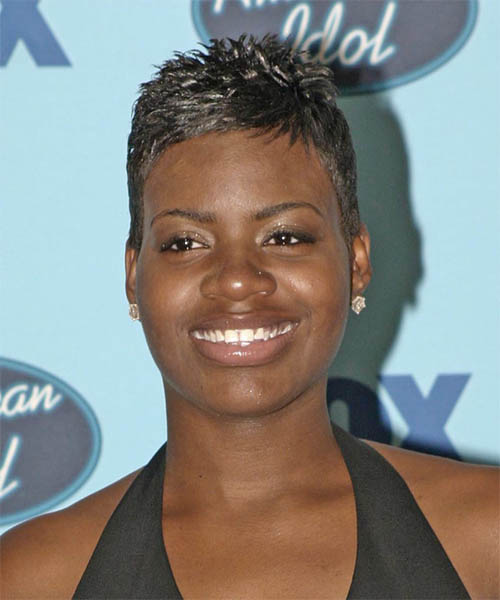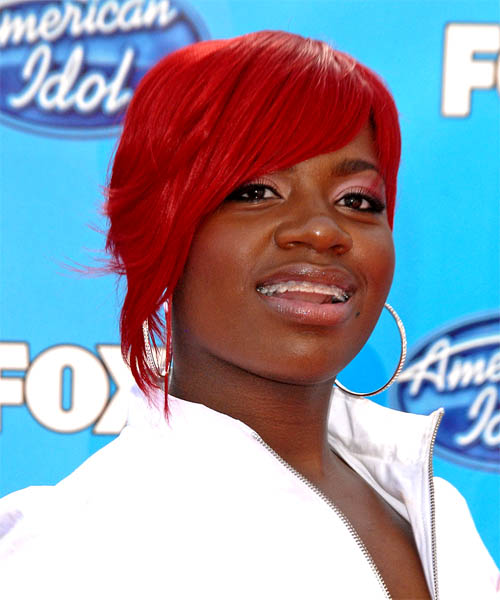According to Nsenga Burton, writer for the Root, "the film industry remains overwhelmingly white and male." This is true to this day yet what is even more striking is the representation when looking at the number of Black women filmmakers in the United States. In her book, Black Women Film and Video Artists, Jacqueline Bobo notes that, "there is a substantial body of work created by Black women film/video makers, extending back to the early part of this century. Unfortunately, the work is overlooked not only by many distributors, but also by critical reviews and scholarly analyses, with the notable exception of those by Black women scholars, have been few and far between." Therefore, when looking at Hollywood's industry Black women filmmakers become the most unnoticeable, they become existent only in the periphery of the industry. In other words, it may be somewhat apparent that Black women filmmakers are small in numbers but the fact of the matter is that there are many black woman filmmakers that are actively contributing to the film industry.
Jacqueline Bobo, an associate professor in the women's studies program at the University of California, Santa Barbara, argues that the general public sees Black women's works as small, irregular works of interest to small circle of intimate friends. Yet what the public fails to see is that, in fact, Black women have gone to prestigious educational institutions (I.E. Columbia University, UCLA, USC, Chicago Institute of the Arts, Northwestern, NYU, etc.) and have earned Masters of Fine Arts degrees from their prospective prestigious graduate film and television programs. Therefore, the idea that these women's works are simply small and catered to a diminutive group of people is by no means true. For, these respected Black women have mastered the understanding of cinema and media history, theory, and criticism all of which is demonstrated in their works resulting into exemplary films and video.
Looking at the history of black women filmmakers, Jacqueline Bobo establishes that black women filmmakers have been productive throughout the twentieth century. Dating back to the 1900's black women filmmakers have created a Genesis of a Tradition. In other words, through Gloria J Gibson-Hudson's essay titled, "The Ties That Bind: Cinematic Representations By Black Women Filmmakers," she notes that these black women have developed a framework or "commonalities" that evolved from social and historical circumstances. Furthermore, historically, there seems to be a clear goal of promoting survival strategies for black women and transforming them into socially committed viewers. In addition, black women filmmakers have traditionally felt the need to challenge the oppression that they historically have encountered. Thus, showing a strong resistance of this oppression through their work. When looking at the subject matter, it is noticeable that black women filmmakers have produced long-form narratives as well as complex innovations with a variety of forms. These subject matters are concerned with vital issues such as cultural politics, domestic relations, sexuality, black women's relationships to concepts of physical reality (including hairstyles and color consciousness) and portraits of cultural, social, and political activists, among other topics.
During the 1930s other pioneer Black female filmmakers included Zora Neale Hurston, a folklorist who created work centering on ethnographic films. Zora Hurston earned her MA in Cultural Anthropology at Columbia University. In addition, Eslanda Goode Robeson is another 1930's pioneer regarding Black female filmmakers. She too held a Ph.D. in Anthropology and made ethnographic films similar to Hurston's reels. Yet, similar to Hurston's films, they are available for viewing at the Library of Congress but their fragile conditions renders it inaccessible for public screening.
An essay written by Claudia Springer in 1984, talks about fifteen Black women filmmakers who worked in Los Angeles. Most of these women had received an MFA in motion picture and/ or television production at UCLA. The other women received their MFA in cinema production from USC. Interestingly enough, though, they all shared one inspiration and goal. According to Springer, they said they chose filmmaking as a way to express their ideas, to influence or enlighten audiences, and to counteract the damage caused by Hollywood's inadequate treatment of Black people . Black women filmmakers feel it necessary to reach Black people with responsible depictions of Black life; it has become imperative.
Baraka recalls the Black aesthetics and for so many Black women filmmakers, they too found this to be true within their works. Black women filmmakers found themselves inspired through their rich histories and through the poor representations that Hollywood cinema had to offer, thus for the most part, they chose to depict their true identities and stories though various distinct styles and perspectives. These styles and perspectives included, documenting black lives, black women narratives, social movements, cultural movements, cultural and creative processes, experimental representation, womanist Black feminism, Afrocentric feminism, Third World feminism, womynism, and African feminism. These Black women filmmakers not only provided astute analyses of Black women's films and videos but also contextualized the works within the broader spectrum of film and video production and criticism
As noted Black women filmmakers have been producing work dating back to the 1900s. They have produced numerous works, yet there are still eminent struggles they face. First and foremost, when it comes to money and the production funding, Black women filmmakers constantly find themselves bumping their head against a financial glass ceiling. The cost to produce a film is getting costly every year and because there has not been much support for many Black women filmmakers, it has become a constant struggle. There have been attempts to help with the funding and various sites on the internet can be found where donations are being accepted. Yvonne Welbon has taken action through her own hands and her website Sisters in Cinema has a donate tab where one can support Black women filmmakers. There are also other foundations such as the Black Women Film Network where scholarships are awarded to Black women who are pursuing their career in film, screenwriting or a related areas; screenings; workshops and seminars. They're main goal is to help support black women in the making of their untold stories.
Jacqueline Bobo, an associate professor in the women's studies program at the University of California, Santa Barbara, argues that the general public sees Black women's works as small, irregular works of interest to small circle of intimate friends. Yet what the public fails to see is that, in fact, Black women have gone to prestigious educational institutions (I.E. Columbia University, UCLA, USC, Chicago Institute of the Arts, Northwestern, NYU, etc.) and have earned Masters of Fine Arts degrees from their prospective prestigious graduate film and television programs. Therefore, the idea that these women's works are simply small and catered to a diminutive group of people is by no means true. For, these respected Black women have mastered the understanding of cinema and media history, theory, and criticism all of which is demonstrated in their works resulting into exemplary films and video.
Looking at the history of black women filmmakers, Jacqueline Bobo establishes that black women filmmakers have been productive throughout the twentieth century. Dating back to the 1900's black women filmmakers have created a Genesis of a Tradition. In other words, through Gloria J Gibson-Hudson's essay titled, "The Ties That Bind: Cinematic Representations By Black Women Filmmakers," she notes that these black women have developed a framework or "commonalities" that evolved from social and historical circumstances. Furthermore, historically, there seems to be a clear goal of promoting survival strategies for black women and transforming them into socially committed viewers. In addition, black women filmmakers have traditionally felt the need to challenge the oppression that they historically have encountered. Thus, showing a strong resistance of this oppression through their work. When looking at the subject matter, it is noticeable that black women filmmakers have produced long-form narratives as well as complex innovations with a variety of forms. These subject matters are concerned with vital issues such as cultural politics, domestic relations, sexuality, black women's relationships to concepts of physical reality (including hairstyles and color consciousness) and portraits of cultural, social, and political activists, among other topics.
During the 1930s other pioneer Black female filmmakers included Zora Neale Hurston, a folklorist who created work centering on ethnographic films. Zora Hurston earned her MA in Cultural Anthropology at Columbia University. In addition, Eslanda Goode Robeson is another 1930's pioneer regarding Black female filmmakers. She too held a Ph.D. in Anthropology and made ethnographic films similar to Hurston's reels. Yet, similar to Hurston's films, they are available for viewing at the Library of Congress but their fragile conditions renders it inaccessible for public screening.
 Fantasia Barrino haircut |  Singer Fantasia Barrino |  Fantasia Barrino Hairstyles |  Fantasia Barrino Hairstyles | Fantasia Hairstyles 2010 |
 Although Fantasia has been |  Singer Fantasia Barrino |  Fantasia Barrino Hair Styles |  Fantasia Barrino performs on |  Fantasia Barrino Hairstyle |
As noted Black women filmmakers have been producing work dating back to the 1900s. They have produced numerous works, yet there are still eminent struggles they face. First and foremost, when it comes to money and the production funding, Black women filmmakers constantly find themselves bumping their head against a financial glass ceiling. The cost to produce a film is getting costly every year and because there has not been much support for many Black women filmmakers, it has become a constant struggle. There have been attempts to help with the funding and various sites on the internet can be found where donations are being accepted. Yvonne Welbon has taken action through her own hands and her website Sisters in Cinema has a donate tab where one can support Black women filmmakers. There are also other foundations such as the Black Women Film Network where scholarships are awarded to Black women who are pursuing their career in film, screenwriting or a related areas; screenings; workshops and seminars. They're main goal is to help support black women in the making of their untold stories.
 Fantasia Barrino |  Fantasia Barrino was spotted |  Fantasia Barrino\x26#39;s Hairstyles |  Fantasia Barrino Tattoos |  Fantasia Barrino performs on |
 Fantasia Barrino Hairstyle |  American Idol: Fantasia |  Fantasia has been a woman of |  Fantasia Barrino Hairstyles |  fantasia barrino red carpet |
No comments:
Post a Comment